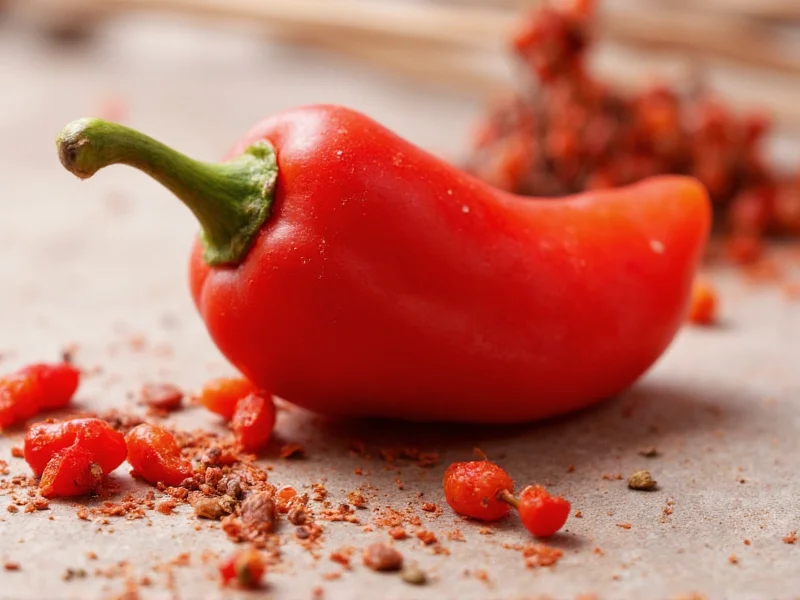Understanding whether is pepper a condiment requires examining culinary classifications and historical context. While both condiments and spices enhance flavor, they serve different roles in cooking and dining traditions. This distinction matters for home cooks, culinary students, and food enthusiasts seeking accurate kitchen knowledge.
Defining Condiments Versus Spices
The confusion around is black pepper a condiment often stems from overlapping culinary terminology. Let's clarify the technical definitions:
| Category | Definition | Examples |
|---|---|---|
| Condiments | Prepared substances served separately to enhance flavor, typically liquid or semi-liquid | Ketchup, mustard, mayonnaise, hot sauce |
| Spices | Dried plant parts used for flavoring, coloring, or preservation | Pepper, cinnamon, cloves, turmeric |
| Seasonings | Broad category including herbs, spices, and blends added during cooking | Salt, garlic powder, Italian seasoning |
Why Pepper Qualifies as a Spice, Not a Condiment
Several factors determine why pepper isn't considered a condiment in culinary science:
- Botanical origin - Pepper comes from dried peppercorns (the fruit of Piper nigrum), fitting the spice classification
- Preparation method - Condiments are typically prepared mixtures, while pepper requires minimal processing
- Historical usage - Pepper has been traded and used as a spice since ancient times, long before modern condiments existed
- Physical form - Most condiments are liquid or semi-solid, while pepper is used in whole, cracked, or ground form
The Pepper Mill Exception
One nuance in the is ground pepper a condiment debate involves pepper mills. When freshly ground at the table, pepper takes on some condiment-like qualities:
- Tableside grinding creates a ritual similar to condiment application
- Many restaurants treat pepper mills like condiment dispensers
- This practice blurs the line between spice and condiment in dining contexts
However, culinary authorities still classify the substance itself as a spice regardless of delivery method. The container doesn't change the fundamental nature of the ingredient.
Historical Context of Pepper Classification
Understanding pepper classification in culinary terms requires historical perspective. Pepper's journey through culinary history solidifies its status as a spice:
- Ancient Romans used pepper as a valuable spice, not as a prepared condiment
- Medieval European spice traders categorized pepper with other dried spices
- Colonial spice routes specifically transported dried peppercorns as spices
- Culinary texts from Escoffier to modern food science consistently classify pepper as a spice
Practical Implications for Cooking
Whether is pepper considered a condiment affects cooking techniques in several practical ways:
- Timing of addition - Spices like pepper are often added during cooking; condiments typically finish dishes
- Flavor development - Pepper's volatile compounds behave differently than liquid condiments
- Measurement precision - Spices require different measuring approaches than pourable condiments
- Storage requirements - Whole peppercorns maintain freshness differently than prepared condiments
Common Misconceptions About Pepper
Several myths persist around pepper as a condiment versus spice:
- Misconception: All table-seasoning products are condiments
- Reality: Salt and pepper shakers contain spices, not condiments
- Misconception: Liquid pepper extracts make pepper a condiment
- Reality: Pepper extracts are spice-based preparations, not true condiments
- Misconception: Restaurant presentation defines culinary categories
- Reality: How pepper is served doesn't change its fundamental classification
Conclusion: Pepper's Proper Culinary Classification
The question is pepper a condiment has a clear answer based on culinary science: pepper is definitively a spice, not a condiment. While dining customs sometimes treat pepper like a condiment, its botanical origin, historical usage, and chemical properties align with spice classification. Understanding this distinction helps cooks apply proper techniques and appreciate culinary traditions more deeply.
Frequently Asked Questions
Is black pepper considered a condiment in culinary terms?
No, black pepper is not considered a condiment. It's classified as a spice because it comes from dried peppercorns (the fruit of Piper nigrum). Condiments are typically prepared sauces or mixtures served separately, while spices are dried plant parts used for flavoring.
What's the difference between a spice and a condiment?
Spices are dried plant parts (seeds, fruits, roots) used for flavoring, while condiments are prepared substances typically served separately to enhance flavor. Spices like pepper are usually added during cooking, while condiments like ketchup are applied after cooking or at the table.
Why do some people think pepper is a condiment?
People often confuse pepper with condiments because it's frequently served in shakers at the table, similar to how condiments are presented. The ritual of adding pepper at the table creates a perception that it functions like a condiment, even though its botanical classification remains that of a spice.
Can freshly ground pepper be considered a condiment?
No, even freshly ground pepper remains classified as a spice. While the tableside grinding ritual resembles condiment application, the substance itself doesn't change its fundamental nature. Culinary science categorizes ingredients based on their origin and properties, not their delivery method.
How does pepper's classification affect cooking?
Understanding pepper as a spice rather than a condiment affects cooking techniques. Spices like pepper are often added during cooking to allow flavors to develop, while condiments typically finish dishes. Pepper's volatile compounds behave differently than liquid condiments, requiring different timing and measurement approaches for optimal flavor.











 浙公网安备
33010002000092号
浙公网安备
33010002000092号 浙B2-20120091-4
浙B2-20120091-4